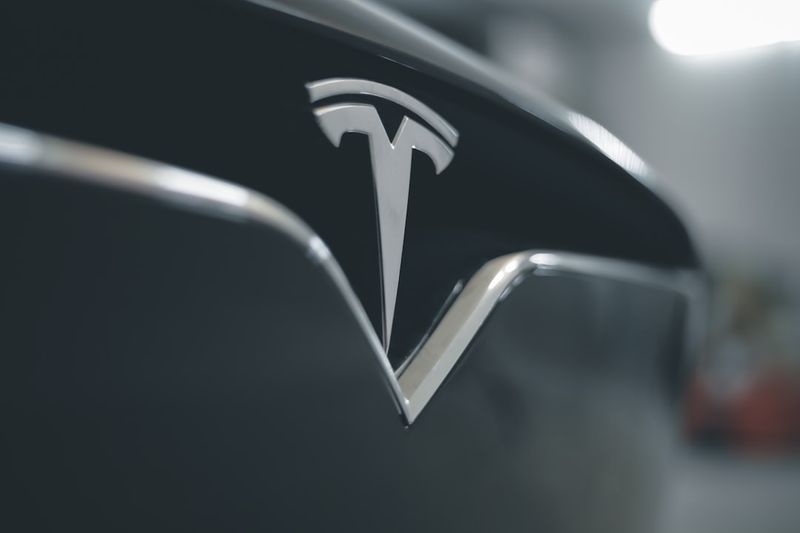UAW nears strike at Detroit Three as Ford blasts union
In a major development, the United Auto Workers (UAW) union is inching closer to a strike at the Detroit Three carmakers – Ford, General Motors (GM), and Stellantis (formerly Chrysler). The UAW, which represents 146,000 auto workers in the United States, is demanding 40% pay raises until September 2027 and significant improvements in benefits. These “audacious” demands, as the UAW calls them, have led to a deadlock in negotiations, with no resolution in sight.
Threat of Simultaneous Strikes
The UAW has warned of a series of strikes targeting individual auto plants if agreements are not reached by the contract deadline. Instead of a full walkout, the union plans to disclose the initial plants during a scheduled event. This simultaneous strike at all three major carmakers would be an unprecedented move by the UAW, marking one of the most ambitious labor actions in the United States in decades. The duration of these strikes would have a significant impact on U.S. economic growth.
Demands and Counteroffers
The UAW’s demands go beyond pay raises and benefits improvements. The union is also advocating for the restoration of defined benefit pensions for all workers, a reduced 32-hour work week, additional cost-of-living adjustments, job security guarantees, and an end to the use of temporary workers. The Detroit Three have countered with their own offers, with GM proposing a 20% wage hike over four and a half years, including 10% in the first year. Stellantis has offered pay hikes of 17.5%, and Ford has proposed a 20% pay increase.
Concerns of Bankruptcy and Losses
The CEO of Ford, Jim Farley, expressed grave concerns about the UAW’s proposal for a 40% pay raise, stating that it would put the company out of business. Farley criticized the lack of progress in the negotiations and highlighted the financial consequences of the UAW’s demands, suggesting that Ford would have lost $15 billion from 2019-2022 if the proposal had been in effect. However, the UAW rebutted by pointing out that Farley made $21 million last year.
GM CEO Mary Barra reminded employees of the 2019 strike, emphasizing that “nobody won” in that situation. GM reported a $3.6 billion pre-tax loss after the 42-day walkout. The possibility of a full strike looms over all three automakers, with potential losses for each company estimated at $400 to $500 million per week if all production comes to a halt.
Potential Impact on the Auto Industry
The UAW’s demands and the potential strike have broader implications for the auto industry. The Detroit automakers could face increased costs and complexity compared to non-union automakers like Tesla as they expand electric vehicle production. The strike could create disruptions in the supply chain and affect the production of vehicles, leading to potential delays and financial setbacks.
Editorial: A Test of Power and Priorities
The current labor dispute between the UAW and the Detroit Three carmakers serves as a critical test of power and priorities in the auto industry. While the UAW seeks significant pay raises and improved benefits for its members, the automakers are concerned about the financial impact of such demands on their businesses.
From a philosophical standpoint, this labor dispute raises important questions about the balance between workers’ rights and the sustainability of the industry. While it is crucial to ensure fair compensation and job security for auto workers, it is also essential for the automakers to remain competitive and financially viable in an increasingly challenging market.
The demands put forth by the UAW, including 40% pay raises and the restoration of defined benefit pensions, may appear audacious to some. However, it is essential to recognize the role that auto workers play in driving the industry’s success. Their dedication and hard work have contributed to the profitability of the Detroit Three and the broader auto sector. Thus, the UAW’s demands should not be dismissed outright but should be carefully considered and negotiated.
At the same time, automakers must prioritize long-term sustainability and adapt to the changing dynamics of the industry, particularly with the rise of electric vehicles. Balancing the needs and expectations of both workers and companies is a delicate task, but it is crucial for the continued growth and success of the auto industry.
Advice: Seek a Balanced Solution
In light of the impending strike, it is imperative for both the UAW and the Detroit Three carmakers to engage in meaningful dialogue and negotiate a balanced solution that addresses the needs of all parties involved.
For the UAW, it is essential to recognize the financial constraints faced by automakers and the need for long-term sustainability. While demanding fair compensation and benefits for members is crucial, it is equally important to consider the broader implications of these demands for the industry as a whole. A reasonable approach that takes into account the financial viability of the automakers and the competitiveness of the industry would ensure a more sustainable and mutually beneficial agreement.
On the other hand, the Detroit Three automakers must acknowledge the contributions and sacrifices made by their workers, who are instrumental in their success. It is vital for them to demonstrate a genuine commitment to fair compensation, job security, and improved working conditions. By actively engaging in negotiations and making reasonable offers, the automakers can show their dedication to their employees and build trust for future collaborations.
Lastly, the involvement of external stakeholders, such as government officials and industry experts, can provide valuable insights and facilitate productive discussions. This collaborative approach would foster a better understanding of the challenges faced by both sides and pave the way for a sustainable resolution.
As the clock ticks closer to the contract deadline, it is crucial for all parties involved to prioritize the best interests of the workers, the companies, and the industry as a whole. Only through open and constructive dialogue can a balanced and mutually beneficial solution be reached.

<< photo by Afif Ramdhasuma >>
The image is for illustrative purposes only and does not depict the actual situation.
You might want to read !
- “Raging Inferno: Explosive Blaze Engulfs Saint Recycling Facility”
- Seattle Police Officer’s Callous Joke Sparks Outrage Over Woman’s Tragic Death
- Selena Gomez Vows to Escape the Meme Culture and Reclaim Her Image
- “French Authorities Halt iPhone 12 Sales Amid Concerns Over Radiation Emissions”
- France Blocks Sales of iPhone 12 Due to Excessive Radiation Emissions
- “Dancing With the Stars” Unveils Its Star-Studded New Season Cast
- Simona Halep’s Fight Against a 4-Year Doping Ban: An Uphill Battle for Justice
- The Artistry of Anthony Hopkins, Johnny Flynn & Helena Bonham Carter Shines in Latest Project
- Zach Wilson Steps Up in Wake of Aaron Rodgers Injury, Proving His Worth




